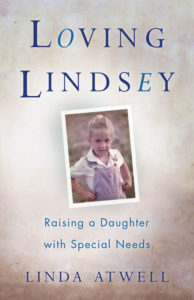“Have you experienced a major trauma in the last couple months?” Dr. Good Hands asks quietly, holding a stapled packet of papers, ready to share the results of my recent chiropractic examination.
I stand in his office, the door shut (most of the way). My right hand reaches back and and squeezes my neck, my shoulder. I try to concentrate on his question instead of the pain in my neck, the ache that’s been there, off and on, for as long as I can remember. At least twenty years.
My history of chiropractic treatment has been simple. Dr. Good Hands treats me a couple times, I feel better, and don’t need to see him again for weeks, months, maybe even a year. But late last spring, I’d received seven adjustments in fourteen days and wasn’t getting better.
“Or anything that has caused you a great deal of recent stress?” Dr. Good Hands clarifies, flipping the packet to a page titled: Autonomic Activity Diagram. It’s an evaluation of my nervous system, the unconscious part that operates involuntarily.
 I study the diagram, thinking, I shouldn’t be stressed. I’m retired. I travel as often as I can (which is often), and I have this awesome, supportive husband. But right in front of me, a black dot represents how my emotions scored on the day of the test. From the dot, red, orange, and bright yellow colors radiate, “indicating severe sympathetic dominance,” Dr. Good Hands explains.
I study the diagram, thinking, I shouldn’t be stressed. I’m retired. I travel as often as I can (which is often), and I have this awesome, supportive husband. But right in front of me, a black dot represents how my emotions scored on the day of the test. From the dot, red, orange, and bright yellow colors radiate, “indicating severe sympathetic dominance,” Dr. Good Hands explains.
The intense colors could represent the pain creeping up my neck and toward my left armpit at this very moment. I stare at the diagram on the paper. Dr. Good Hands turns the page, stopping on an earlier graph, from an earlier examination. That dot is positioned closer to the green area, the goal range, the healthy place.
“Since your body isn’t responding to treatment this time,” he says, pausing. “I’m assuming something major must have occurred and you’re holding onto your pain. And the pain won’t likely go away until you deal with whatever’s bothering you.”
I cannot speak. But I know. I instantly know why this pain isn’t going away.
Lindsey. Lindsey and Nick. Lindsey. Of course I’m holding on to my pain. I’ve been holding on to it for a very long time. But ever since Lindsey’s husband, Nick, had emergency surgery in late March, the hurt in my body has escalated. And please know that my pain is nothing compared to Nick’s. I don’t deserve to even talk about my discomfort. Nick’s parents oversee their son’s medical needs, so I do not deal with that at all–except to be supportive. And believe me, compared to Nick’s parents, we would be considered lame in this arena as well. In reality, there isn’t much we can do.
But I worry. Then I worry some more. About Lindsey, about Nick, about them as a couple.
Health issues are challenging. This developmentally delayed couple has been married less than two years. We try to support our thirty-four-year-old daughter as she encourages and cares for her thirty-six-year-old husband. Lindsey doesn’t always know how to help Nick. So we invite them for dinner and offer our ears, our shoulders, our ideas. I’ve prepared meals that can be frozen, eaten later. But it turns out this couple is picky, and casseroles (and other meals they’ve eaten at our house and told us they loved), end up in the trash without ever being unwrapped. Then Lindsey tells us her cupboards are bare and she can’t find anything to eat. I tell myself she can’t help that she handles life differently than I do, that it’s not her fault. But when I hear her say this, my neck tightens. My muscles burn. I make Lindsey a sandwich, then drive to the gym and stretch my taunt muscles until I feel some relief.
Lindsey continually expresses concern for her husband and his future health. She frets. (Her response is totally understandable, typical.) But does my daughter have the ability to cope with all this? I wonder, worrying if I have the ability to cope myself. I listen to my daughter more. She confides that she is missing a lot of work. From her explanations, I’m unclear whether her illnesses are real or imagined. I go and peddle a bike in spin class, fearing that all Nick’s medical issues have motivated Lindsey to crave attention for her minor afflictions. And I’m concerned some of my daughter’s recent choices will ultimately place a greater strain on their marriage. I take a walk with my husband and talk out my worries.
And I continue to visit Dr. Good Hands.
Then Lindsey calls two, three, maybe five times in one afternoon, asking us what to do, how to handle a particular situation. We offer suggestions, solutions, but our daughter ignores our words and elects to move forward with a decision we do not encourage or support. And the pain in my neck spikes once again.
Apparently, from this graph, I’m holding all this turmoil inside. I didn’t realize I was. But maybe there is no good place, such as a worry graveyard, for all these troubles to go. And because I parent an adult with special needs, I brace for the next event that will ultimately come our way, knowing I’m not the only special needs parent who rides on this wild roller coaster called life. Today I feel a sense of peace knowing I’m riding with the support of a community who faces similar struggles from time to time.
So yes, Dr. Good Hands. I guess I did experience a trauma in the last few months.
The good news: It looks like I’m going to be your patient for a very long time.
By the way, can you get me in again tomorrow?

My first book will be coming out September 26, 2017. If you are interested in learning more about Loving Lindsey: Raising a Daughter with Special Needs, please click here.

